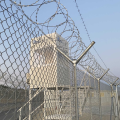Libyan revolutionary fighters develop a 'national army-in-waiting'
New research examining how armed groups formed in Libya to topple Colonel Muammar Gaddafi says the revolutionary brigades are still a cohesive military force.
The study highlights the emergence of the National Shield, which it calls an 'army-in-waiting'. The research suggests there is a power struggle over the rebuilding of the Libyan National Army as revolutionary commanders still distrust much of the leadership of the Libyan National Army and the Ministry of Defence who ran the war against them.
The research findings are published today by the Small Arms Survey in 'Research Note 18: Armed Groups in Libya – Typology and Roles'. It is based on seven months of field studies in Libya by Brian McQuinn from Oxford University, who was based in Misrata at the time of the uprising but also conducted research in Benghazi, Sirte and Tripoli.
The research suggests that Libya's revolutionary forces still command 75 to 85 per cent of the seasoned fighters and weapon stockpiles not controlled by the government. In Misrata, 236 distinct armed groups are registered with the Misratan Union of Revolutionaries, accounting for almost 40,000 brigade members.
McQuinn's study links the demilitarisation of revolutionary brigades to the creation of a legitimate national army. Despite calls by commentators for revolutionary brigades to join the national army, the study shows that there is a power struggle over how it is rebuilt.
Study author Brian McQuinn, from Oxford University's Centre for Anthropology and Mind, says: 'While moves to reform of the Ministry of Defence and the Libyan National Army are critical to long-term demobilisation efforts, local security initiatives are driving national policy.
'Revolutionary brigades have created a national network of revolutionary unions and established the National Shield, a national army-in-waiting, in order to safeguard the "ideals of the revolution". The revolutionary unions trust the Head of the Libyan National Army, General al-Mangoush, but the practical result is that he now controls two national armies.'
The study distinguishes between four types of armed groups operating in Libya: revolutionary brigades, unregulated brigades, post-revolutionary brigades and militias. It details their different histories and objectives, highlighting that it is critical to differentiate between them for effective international policy. It notes that most of the available analysis to date has tended to label them all as 'militias'.
While some armed groups continue to present a threat to stability, others are playing an active role in securing the country's future, according to the research. Most of revolutionary brigades took up arms to protect their local communities. Thus far, brigade leaders still command the respect of brigade members, but the study warns that this situation could change over time.
The research highlights the support given to revolutionary military leaders by military councils, which formed during the war to provide security in many cities. The National Shield has already been deployed in coordination with other state and non-state armed groups to subdue violence in Kufra, Zuwara, and Sebha. Revolutionary brigade leaders could also support efforts to rein in 'rogue' brigades, a small minority who are responsible for a disproportionate number of the security incidents and human rights abuses, suggests the research.
The issue of who currently controls much of Gaddafi's vast arsenal of weapons and munitions is also raised in the study. It says local military commanders and civilian leaders have expressed concerns about a lack of secure storage for weapon stockpiles and the quantity of assault weapons still held by individuals in the community.
McQuinn says: 'Successful national elections in July will be critical for establishing a government that is seen as legitimate. The current delay in demobilisation programmes for brigade members is breeding disappointment among fighters. This situation has led to them being less willing to listen to local civilian and military leaders and it is weakening their commitment to participate in the transition to a new Libya.'
 Researchers find oldest undisputed evidence of Earth’s magnetic field
Researchers find oldest undisputed evidence of Earth’s magnetic field
 Honorary degree recipients for 2024 announced
Honorary degree recipients for 2024 announced
 Vice-Chancellor's innovative cross-curricular programme celebrated
Vice-Chancellor's innovative cross-curricular programme celebrated
 New database sheds light on violence in Greek detention facilities
New database sheds light on violence in Greek detention facilities
 New trial using skin patches as an ‘early warning system’ to spot lung transplant rejection
New trial using skin patches as an ‘early warning system’ to spot lung transplant rejection